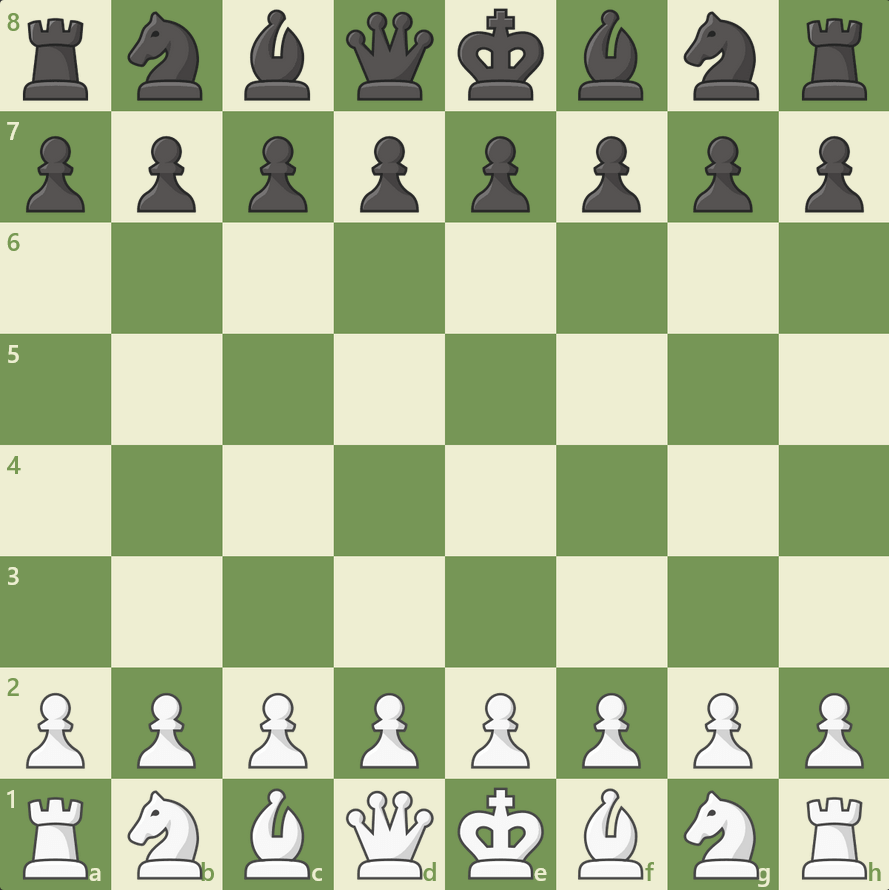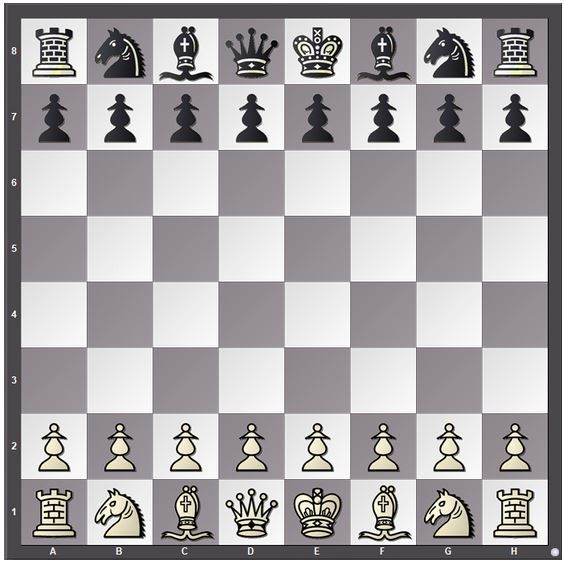Chess Opening Traps That Boost Your Wins
All Regarding Chess: Discover the Remarkable Background and Strategies Behind the Game
Chess, with its beginnings going back to sixth century India, has transformed substantially over the centuries. This game has mesmerized minds worldwide, showcasing the radiance of famous gamers like Garry Kasparov and Bobby Fischer. Understanding the details of chess, from the activities of each piece to important methods, reveals its deepness. Yet, the inquiry remains: what drives the sustaining attraction with this ancient game? Discovering its history and techniques may reveal much deeper insights.
The Origins of Chess: A Journey With Time
The specific origins of chess remain unpredictable, historical evidence recommends that the game developed from earlier methods played in India around the 6th century. Called Chaturanga, this very early form of chess featured pieces representing infantry, mounties, elephants, and chariots, showing the armed forces techniques of the moment. As Chaturanga spread out via trade routes, it adjusted to numerous societies, bring about the production of Shatranj in Persia. This alternative introduced brand-new guidelines and item motions, laying the foundation for contemporary chess.
Chess Prodigies: Significant Figures in the Game's History
Throughout chess history, amazing natural born players have arised, shaping the game's landscape and inspiring future generations. From fabulous champions that controlled the boards in their time to modern abilities redefining the limitations of youth and skill, these players have actually made indelible marks on the sporting activity. Their stories highlight not just specific brilliance yet also the developing nature of chess as an affordable undertaking.
Fabulous Chess Champions
Chess has actually been shaped by the luster of various legendary champs whose contributions have left an indelible mark on the game. Numbers like Garry Kasparov, known for his vibrant style and unparalleled strategic deepness, controlled the chess globe during the late 20th century. Anatoly Karpov, his rival, showcased outstanding positional understanding and emotional expertise, protecting multiple world titles. Bobby Fischer, an American natural born player, revolutionized chess with his unrivaled ability and intense emphasis, finishing in his 1972 World Championship success. Additionally, José Raúl Capablanca's natural capability and endgame mastery set new criteria in the early 20th century. These champs not just mastered competition however additionally inspired generations, forming chess into a global sensation celebrated for its intellectual rigor and creativity.
Contemporary Prodigies
What makes a chess natural born player truly remarkable? The capacity to comprehend complicated strategies at a remarkably young age establishes them apart. Modern-day chess prodigies like Magnus Carlsen, Fabiano Caruana, and Alireza Firouzja have mesmerized target markets with their remarkable ability. Carlsen, becoming a Grandmaster at just 13, redefined expectations and rose to World Champion standing. Caruana, understood for his deep preparation and tactical expertise, has actually continually tested the elite. Firouzja, born in 2003, represents the new generation, incorporating imagination with ruthless passion. These gamers exhibit a mix of natural ability, extensive training, and mental stamina, affecting the game's evolution. Their payments guarantee that chess continues to be a vibrant and vibrant discipline, motivating future generations of gamers worldwide.
Comprehending the Chessboard: Parts and Their Activities
The chessboard offers as the field of battle where complicated techniques unfold, featuring a special collection of items, each with distinctive activities and roles. Comprising 64 squares set up in an 8x8 grid, it is home to the king, queen, rooks, knights, diocesans, and pawns. The king, one of the most vital item, relocates one square in any kind of instructions, while the queen, one of the most effective, can pass through any kind of variety of squares vertically, horizontally, or diagonally. Rooks relocate straight lines, whereas bishops move diagonally across the board. Knights have an unique L-shaped activity, leaping over various other items. Pawns progress one square however capture diagonally, with the option to move two squares ahead on their initial action. Each piece's movement adds to the detailed dance of approach and techniques, making the chessboard a vibrant stage for intellectual battle. Understanding these motions is fundamental for players intending to navigate the complexities of the game.

Important Methods for Beginners: Tips to Enhance Your Game
Mastering the activities of chess pieces prepares for developing effective techniques. For beginners, concentrating on managing the center of the board is essential. This allows for greater movement and influence over the game. Establishing items early, instead than relocating the exact same item numerous times, can help develop a solid position.
In addition, gamers need to prioritize king safety by castling early, making certain the king is tucked away from hazards. Acknowledging tactical opportunities, such as forks, pins, and skewers, can supply benefits in material gain. It is additionally important to believe in advance; expecting additional resources an opponent's moves fosters much better defensive and offensive play.
Keeping a balanced strategy between aggressive and defensive strategies can stop unnecessary oversights. By applying these basic approaches, newbies can enhance their gameplay and develop a strong foundation for future improvement in chess.
Advanced Methods: Raising Your Chess Skills
In the domain name of chess, mastering sophisticated techniques can greatly enhance a gamer's capacity. Identifying tactical patterns, understanding endgame strategies, and recognizing opening up concepts are vital aspects that elevate one's game. These components not only improve total efficiency however also foster deeper calculated reasoning.

Tactical Patterns Recognition
Recognizing tactical patterns is vital for elevating chess abilities to a higher degree. Players who master these patterns can identify possibilities for tactical maneuvers, enhancing their chances of success. Usual patterns consist of forks, pins, skewers, and uncovered assaults, each offering strategic benefits when performed properly. Understanding these themes enables players to anticipate their challenger's steps and counter them efficiently. Additionally, researching classic games can reveal just how masters employed tactical patterns to protect triumphes. Routine technique and evaluation of one's own games can even more reinforce pattern recognition, allowing players to react swiftly and properly during matches. Inevitably, honing this ability transforms the strategy to chess, connecting the space between amateur and advanced play.
Endgame Approaches Proficiency
Reliable endgame techniques can greatly affect the result of a chess suit, frequently determining the difference in between a win and a draw. Advanced gamers comprehend the significance of item sychronisation and the usage of pawns in the endgame. Secret strategies include advertising pawns to queens and creating passed pawns that can progress unblocked. Acknowledging crucial settings, such as the resistance and zugzwang, is essential for accomplishing useful configurations. Mastery of endgame methods, such as king and pawn versus king scenarios, can turn potential losses right into draws or wins. Players must also concentrate on streamlining the placement when ahead, trading pieces to convert product advantages into victory. Continual practice and evaluation of endgame positions will elevate a gamer's overall chess abilities substantially.
Opening Up Principles Recognizing
Understanding endgame techniques lays a strong foundation for comprehending opening concepts. In chess, the opening phase is vital as it establishes the stage for the center game. Chess. Players ought to prioritize control of the center, creating pieces effectively, and making certain king safety and security. Effective openings frequently entail relocating pawns to establish main dominance while working with small and significant items for optimal activity. The principles emphasize stagnating the very same piece numerous content times without necessity and avoiding very early queen growth, which can lead to susceptability. By adhering to these foundational strategies, gamers can produce a solid framework that boosts their tactical opportunities later in the game. Understanding these opening up principles is important for raising one's chess skills and accomplishing success

The Social Effect of Chess: Why It Matters Today
Chess, a game with roots tracing back over a millennium, continues to exert an extensive social impact throughout the world. It transcends plain home entertainment, functioning as a device for education, critical reasoning, and social communication. Lots of schools incorporate chess right into their educational programs, promoting cognitive growth and tactical reasoning among pupils. The game also fosters inclusivity, useful content bringing together diverse areas and encouraging intergenerational connections.
Chess has permeated preferred society, inspiring literature, movies, and also fashion. Legendary numbers like Bobby Fischer and Garry Kasparov have actually become social symbols, highlighting the game's potential for personal and nationwide satisfaction. In the digital age, on-line platforms have actually additionally equalized access to chess, allowing millions to engage with the game. As society faces complicated difficulties, chess continues to be appropriate, offering lessons in patience, foresight, and resilience, therefore reinforcing its relevance in modern-day society and every day life.
Often Asked Concerns
Just How Has Chess Influenced Pop Culture and Media?
Chess has actually considerably influenced prominent society and media, appearing in films, literary works, and art. It represents intellect and strategy, inspiring narratives and characters while promoting motifs of dispute, competition, and the human experience.
What Are the Conveniences of Playing Chess for Mental Health?

Exist Different Chess Versions Played Around the World?
Yes, various chess variations are played worldwide, consisting of Bughouse, Chess960, and Three-check chess. Each alternative presents distinct regulations and approaches, offering gamers with diverse experiences and obstacles that differ from conventional chess.
How Do Chess Engines and AI Influence Modern Chess?
Chess engines and AI significantly boost modern chess by offering innovative evaluation, enhancing gamer skills, and influencing techniques. They function as training tools and competitors aids, transforming how gamers come close to the game at all levels.
What Are Common Mistaken Beliefs Concerning Chess Players?
Typical misconceptions regarding chess gamers include the idea that they are all shy wizards, entirely concentrated on strategy. Chess. In truth, players vary substantially in individuality, history, and method, commonly enjoying social interactions and diverse interests